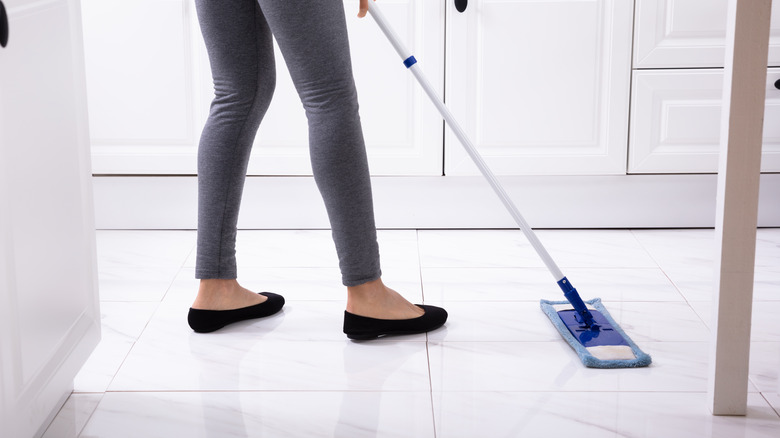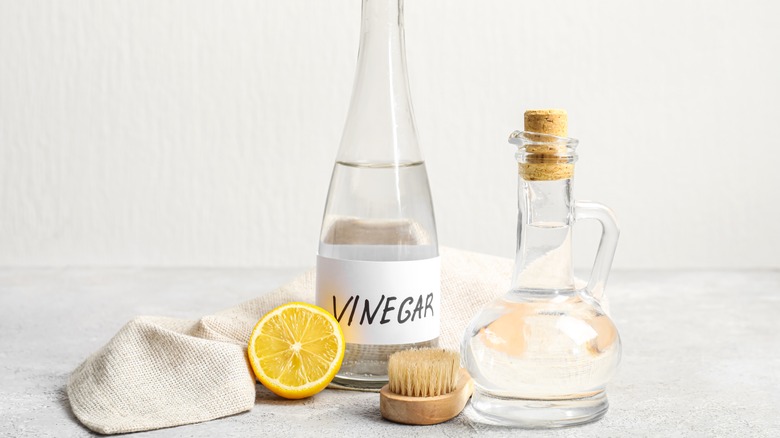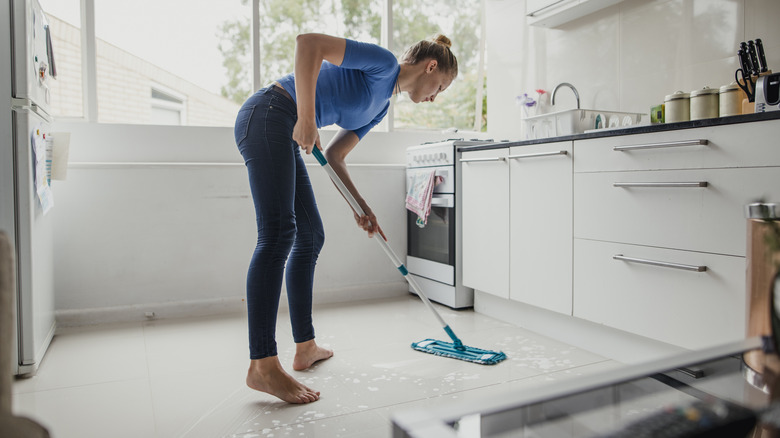Common Cleaning Products You Should Avoid Using On Stone Floors
Several types of material fall under the natural stone category, including marble, granite, travertine, limestone, and sandstone. While it is beautiful and will lend a unique look to your home, natural stone floor can be relatively tricky to keep clean and in good condition (this will also depend on the type of floor you opt for). There are some cleaning products you should steer well clear of when it comes to your natural stone floors, namely anything that's too acidic and also any cleaning items that are overly abrasive.
They may be fine to use elsewhere in your home, but using products or ingredients that fit into these categories could leave you with a visibly scratched, discolored, or otherwise damaged floor. Plus, you may not be aware that even all-natural items can sometimes have a negative effect on your floor. Whether it's in your kitchen, bathroom, or entryway, looking after your natural stone floor will mean it will last much longer, which is why we've rounded up all you need to know about which items to avoid and what to opt for instead.
Avoid acids when cleaning your natural stone floor
First things first, always avoid vinegar. It may be a solid natural alternative to regular cleaning products in some instances, but vinegar should never be used to clean stone floor due to its acidic pH. If your floor contains calcium carbonate, acids can lead to etching, which is when the acid reacts with the calcium carbonate found in stones like marble and leaves your floor with a dull finish. In addition to vinegar, while lemon juice has many household uses, it is also acidic and can have a similar etching/dulling effect. Always check the label of a cleaning product to see if it has either vinegar or lemon juice in it to avoid making a mistake this way, too.
Another ingredient you shouldn't use on your natural stone floor is bleach. Bleach is too harsh and could cause damage. In the same vein, skip the ammonia - and never mix bleach and ammonia together, as this can create a substance called chloramine gas that is extremely dangerous to your health. Last but not least, abrasive cleaners are, you guessed it, too abrasive for natural stone flooring. This includes dry and soft cleaners, both of which should be avoided in case of scratches.
Use these items instead to clean your stone floor
Now you know what to avoid, you may be wondering what to clean your natural stone floor with instead. The easiest way is to reach for a pH-neutral cleaner. This way, you can be sure you're not reaching for anything too acidic or even too alkaline. Never use a product directly on your floor before diluting with warm water. This goes for whichever cleaner you choose. As for when to mop, you actually only need to do so when your floor looks visibly dirty. Over-mopping can cause the stone to wear down faster.
Other than this, everyday maintenance of your natural stone floors is easy. To get rid of dust and debris, simply vacuum often and sweep up any visible dirt that appears in-between vacuuming sessions. Note that your vacuum should feature the soft brush attachment and you shouldn't use a rough sweeping brush. This method can also be used to clean natural stone tile. As long as you steer clear of the cleaning items mentioned above, your floor should stay in tip-top condition for years to come.


